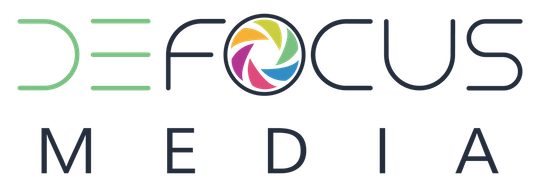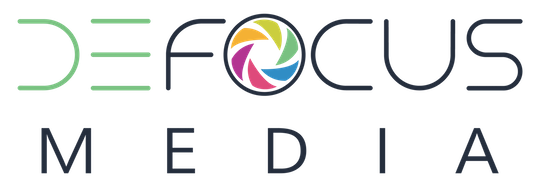Podcast: Play in new window | Download | Embed
Subscribe: Apple Podcasts | Spotify | Amazon Music | Android | RSS
Key Takeaways
- Amniotic membrane is a versatile therapy for many corneal conditions and easier to apply than most expect.
- Ophthalmologic Canada is making it more accessible by addressing cost, training, and coverage barriers.
- True expertise in dry eye treatment comes from judgment and knowing when to use each tool.

The amniotic membrane is rapidly becoming a cornerstone in modern dry eye treatment and corneal surface disease management. Once seen as highly specialized, this therapy is now accessible for optometrists across Canada thanks to initiatives from Ophthalmologic Canada. In a recent episode of The 2020 Podcast, host Dr. Harbir Sian sat down with Dr. Julian Prosia to explore how the therapy works, why it matters, and how clinicians can incorporate it into daily practice.
Table of Contents
What Is an Amniotic Membrane?
The amniotic membrane is the innermost layer of the placenta, rich in regenerative properties. Its anti-inflammatory, antifibrotic, and anti-angiogenic factors allow it to heal corneal damage, reduce scarring, and restore surface integrity. Delivered as a small disc applied with a bandage contact lens, it has shown effectiveness in more than 30 indications, including recurrent erosions, sterile ulcers, persistent epithelial defects, and recalcitrant dry eye cases.
From Passion to Practice: Dr. Julian Prosia’s Journey
Graduating from Nova Southeastern University in 2021, Dr. Julian Prosia quickly earned recognition for his focus on dry eye treatment. Practicing in Hamilton, Ontario, he developed a high-volume dry eye practice while maintaining a commitment to education and innovation. His early clinical experiences demonstrated the urgent need for effective therapies that go beyond traditional artificial tears or steroids.
Launching Ophthalmologic Canada
In 2023, Dr. Prosia co-founded Ophthalmologic Canada, introducing both Health Canada–approved and FDA-approved amniotic membranes to Canadian practitioners. His vision was to close the gap between availability and accessibility, ensuring optometrists could adopt the therapy without excessive barriers. With support from industry partners and his brother’s business expertise, Ophthalmologic Canada positioned itself as a bridge between innovation and clinical practice.
Patient Story: When Amniotic Membrane Changed a Life
One of Dr. Prosia’s first encounters with the therapy was life-changing—for both patient and doctor. A cancer survivor presented with severe dry eye and suicidal ideation, desperate for relief. After applying an amniotic membrane, her pain improved dramatically, giving her back her quality of life. She later nominated Dr. Prosia as a “Top Doctor of Boca Raton” in 2023, an accolade he credits to the power of this treatment rather than personal achievement.
“If I can do this and you can do this, we can help so many more people—that’s the point.” —Dr. Julian Prosia
Overcoming Barriers: Cost, Training, and Insurance
Skepticism often stems from perceived complexity and expense. Yet, compared to six-figure investments in devices like IPL or radiofrequency, the amniotic membrane offers a far lower upfront cost—around $485 per lens, with a five-year shelf life. Clinicians may order case-by-case or stock a small inventory. Training is straightforward, requiring only basic familiarity with forceps and bandage lens application.
Insurance coverage remains a challenge in Canada, but advocacy is growing. Ophthalmologic Canada provides ICD-10 templates and collaborates with the Canadian Association of Optometrists to push for expanded reimbursement, following U.S. precedents where membranes are routinely covered.
Clinical Integration: Workflow and Chairside Pearls
The application is more straightforward than many expect. After a brief orientation, optometrists can place a membrane in under a minute, smooth it, and secure it with a bandage lens. Follow-up within a week often reveals remarkable healing—sometimes turning chronic, non-healing corneas into clear, comfortable eyes in days.
This accessibility underscores that optometrists do not need to identify solely as “dry eye specialists” to use membranes. Instead, they can employ them for urgent cases, recurrent erosions, or non-healing epithelial defects that appear in any general practice.
Beyond Evaporative: Recognizing Mixed Dry Eye
For years, the industry focus has leaned heavily on evaporative disease and meibomian gland dysfunction, fueled by device-driven solutions. Yet Dr. Prosia emphasizes that mixed disease—a combination of evaporative and aqueous deficiency—may be just as prevalent. Neglecting this broader spectrum risks under-treating nearly half of patients. The amniotic membrane provides a bridge, addressing both inflammation and surface healing in complex presentations.
The 10,000-Hour Path to Expertise
Citing Malcolm Gladwell’s “10,000 hours” principle, Dr. Prosia argues that expertise is not simply owning equipment or performing a procedure. True mastery lies in knowing when to use each tool—and when not to. Optometrists gain expertise by pattern recognition, case-based learning, and reflective practice. The amniotic membrane exemplifies this principle: accessible, powerful, but requiring clinical judgment to maximize patient benefit.
“You could have the nicest tool in the world, but expertise is knowing when to use it—and when not to.” —Dr. Julian Prosia
The amniotic membrane is no longer a niche therapy—it is a practical, powerful tool in dry eye treatment and corneal disease management. Thanks to innovators like Ophthalmologic Canada, Canadian optometrists now have greater access to this regenerative therapy. For practitioners seeking to grow their skillset and improve patient outcomes, this episode is both a guide and an invitation: invest your time, build your expertise, and expand the impact you can make on your patients’ lives.


